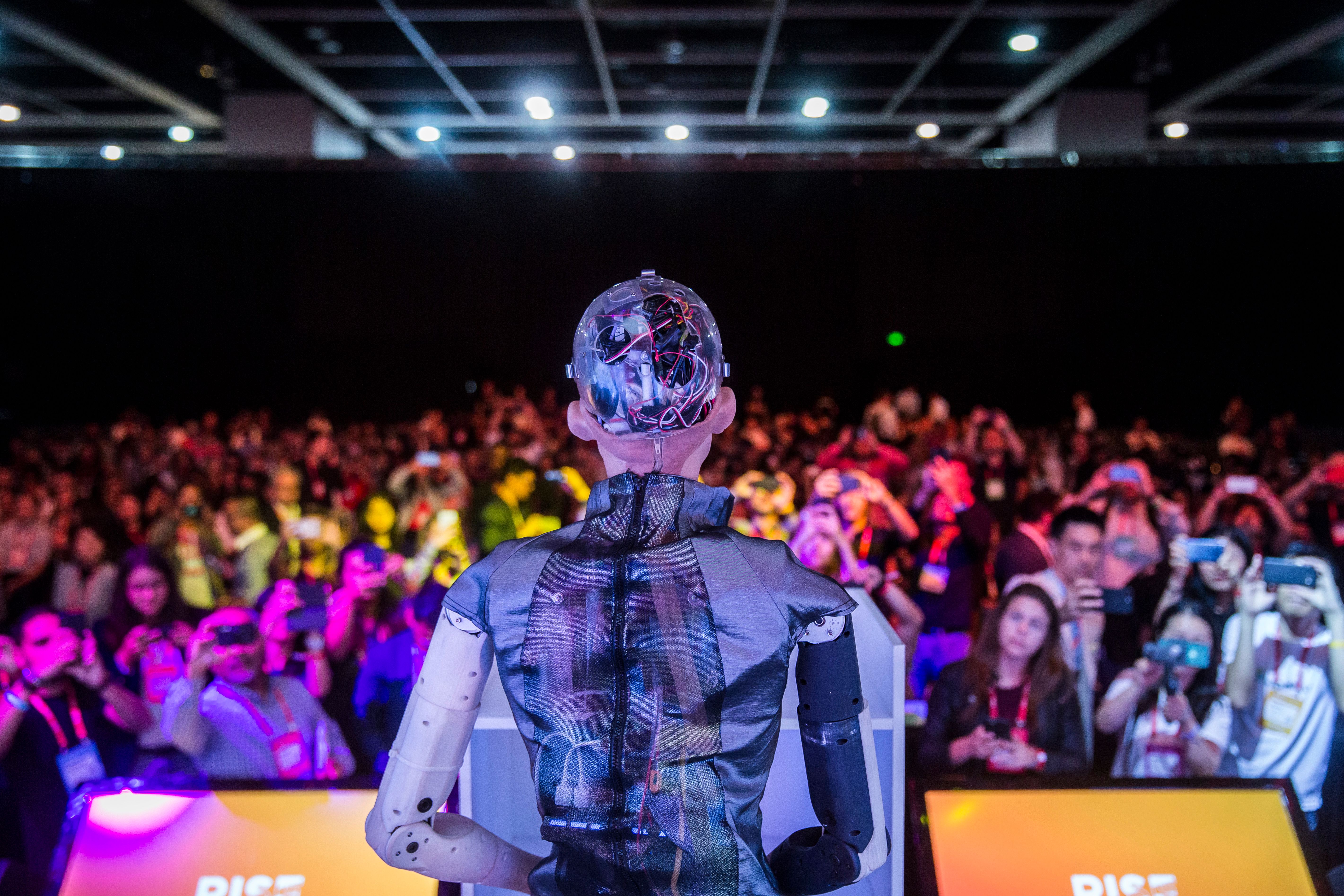Bank of England says jobs are at risk from robots
Chief economist warns that the rise of AI could spark a Fourth Industrial Revolution, putting thousands out of work

A free daily email with the biggest news stories of the day – and the best features from TheWeek.com
You are now subscribed
Your newsletter sign-up was successful
The Bank of England has issued a warning that thousands of jobs may be at risk of being replaced by artificial intelligence (AI) systems.
Andy Haldane, the bank’s chief economist, told the BBC that the rapid growth of AI development would make many jobs “obsolete”. It could also spawn a “Fourth Industrial Revolution” that would be on a “far greater scale” than the first one of the Victorian era.
Appearing on BBC Radio 4’s Today Programme this morning, Haldane said: “Each of those [industrial revolutions] had a wrenching and lengthy impact on the jobs market, on the lives and livelihoods of large swathes of society”.
The Week
Escape your echo chamber. Get the facts behind the news, plus analysis from multiple perspectives.

Sign up for The Week's Free Newsletters
From our morning news briefing to a weekly Good News Newsletter, get the best of The Week delivered directly to your inbox.
From our morning news briefing to a weekly Good News Newsletter, get the best of The Week delivered directly to your inbox.
He said that the next Industrial Revolution could feature AI-powered machines capable of “thinking and doing”. These would replace “both the cognitive and the technical skills of humans.”
Haldane’s comments reflect the predictions of several tech experts, the Huffington Post says. The most common belief is that AI will have the most significant impact on manual jobs, while occupations involving more human interaction may be the least affected.
But not everyone agrees. Leslie Willcocks, a professor at the London School of Economics, told the news site that the move to greater automation in the workplace could be beneficial for employees.
He said that companies that use AI for “monotonous” roles could then place workers in “more interesting” and “rewarding” positions.
A free daily email with the biggest news stories of the day – and the best features from TheWeek.com
Meanwhile, a study by the Organisation for Economic Cooperation and Development (OECD) earlier this year claimed that fears over AI replacing thousands of jobs were “overblown”, the Financial Times reports.
The OECD argues that occupations are significantly harder to automate than previous studies have predicted, the FT adds.
In either situation, Haldane suggests the best course of action is for employers to create more roles that cannot be fulfilled by AI.
He concluded: “We will need even greater numbers of new jobs to be created in the future, if we are not to suffer this longer-term feature called technological unemployment”.
-
 Wuthering Heights: ‘wildly fun’ reinvention of the classic novel lacks depth
Wuthering Heights: ‘wildly fun’ reinvention of the classic novel lacks depthTalking Point Emerald Fennell splits the critics with her sizzling spin on Emily Brontë’s gothic tale
-
 Why the Bangladesh election is one to watch
Why the Bangladesh election is one to watchThe Explainer Opposition party has claimed the void left by Sheikh Hasina’s Awami League but Islamist party could yet have a say
-
 The world’s most romantic hotels
The world’s most romantic hotelsThe Week Recommends Treetop hideaways, secluded villas and a woodland cabin – perfect settings for Valentine’s Day
-
 Claude Code: Anthropic’s wildly popular AI coding app
Claude Code: Anthropic’s wildly popular AI coding appThe Explainer Engineers and noncoders alike are helping the app go viral
-
 Will regulators put a stop to Grok’s deepfake porn images of real people?
Will regulators put a stop to Grok’s deepfake porn images of real people?Today’s Big Question Users command AI chatbot to undress pictures of women and children
-
 Most data centers are being built in the wrong climate
Most data centers are being built in the wrong climateThe explainer Data centers require substantial water and energy. But certain locations are more strained than others, mainly due to rising temperatures.
-
 The dark side of how kids are using AI
The dark side of how kids are using AIUnder the Radar Chatbots have become places where children ‘talk about violence, explore romantic or sexual roleplay, and seek advice when no adult is watching’
-
 Why 2025 was a pivotal year for AI
Why 2025 was a pivotal year for AITalking Point The ‘hype’ and ‘hopes’ around artificial intelligence are ‘like nothing the world has seen before’
-
 AI griefbots create a computerized afterlife
AI griefbots create a computerized afterlifeUnder the Radar Some say the machines help people mourn; others are skeptical
-
 The robot revolution
The robot revolutionFeature Advances in tech and AI are producing android machine workers. What will that mean for humans?
-
 Separating the real from the fake: tips for spotting AI slop
Separating the real from the fake: tips for spotting AI slopThe Week Recommends Advanced AI may have made slop videos harder to spot, but experts say it’s still possible to detect them